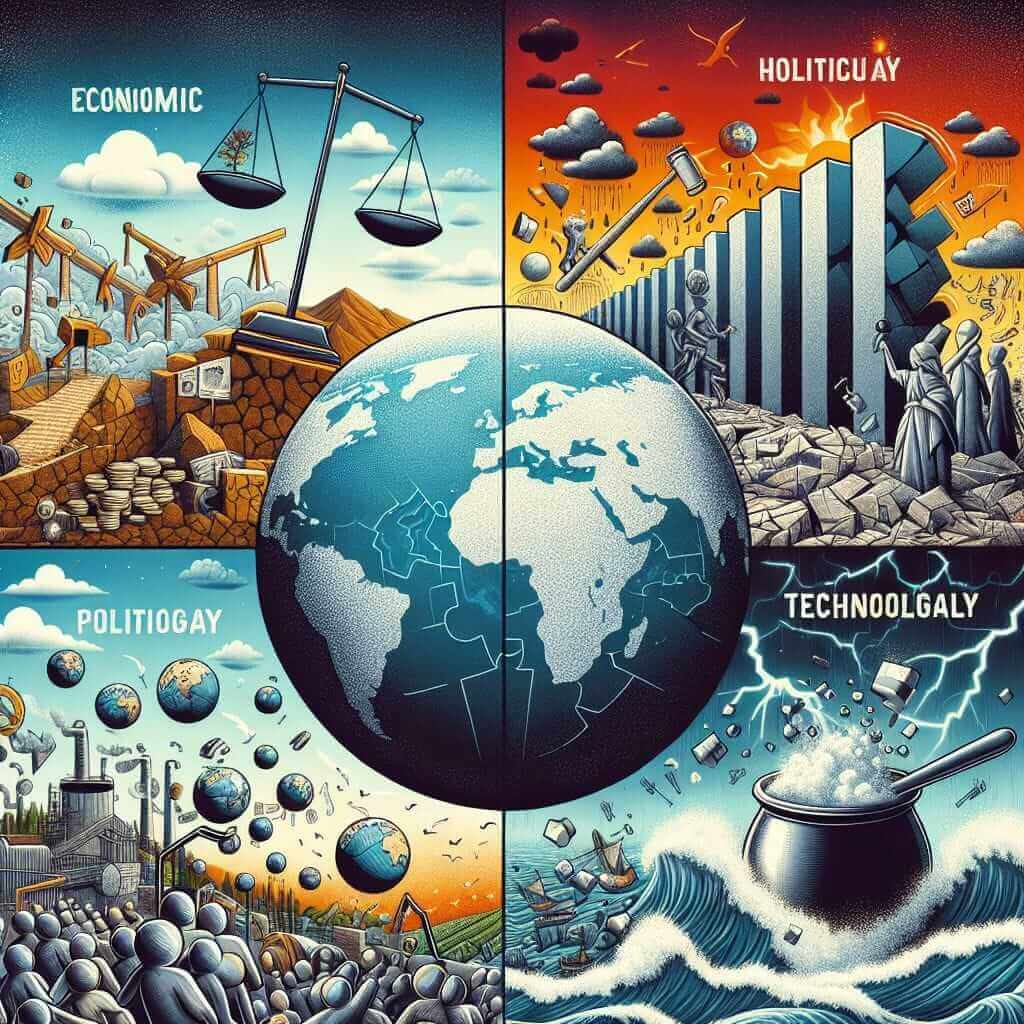The IELTS Reading section is a critical part of the exam, demanding strong comprehension skills, quick skimming, scanning techniques, and the ability to handle a diverse range of topics. One topic that has gained significant attention over recent years is global climate justice—an issue that intersects environmental sustainability, economic equity, and social justice. Given its rising importance, it’s plausible that this subject could be featured in future IELTS Reading passages.
Examining the Challenges of Achieving Global Climate Justice
Practice Reading Passage
Below is a sample IELTS Reading passage designed to provide you with a realistic practice experience. This passage is categorized as “Medium Text.”
Global climate justice refers to the fair and equitable sharing of the burdens and benefits of climate change and its mitigation among different countries and communities. Achieving global climate justice faces several challenges:
-
Economic Inequalities: One of the primary challenges is the vast economic inequalities between developed and developing countries. Developed nations have historically contributed more to greenhouse gas emissions, yet the impacts of climate change disproportionately affect poorer countries. Developing nations often lack the financial resources and technological capabilities necessary to implement effective climate mitigation strategies. This economic disparity creates friction in international negotiations, as wealthier nations are often expected to shoulder more of the financial burdens.
-
Political Will and Commitment: Achieving climate justice requires significant political commitment, which varies greatly among countries. Inconsistent political will can hinder global efforts, as seen in varied adherence to international agreements such as the Paris Accord. Some countries may prioritize short-term economic gains over long-term environmental sustainability, complicating collective action.
-
Technological Barriers: Technological advancements play a critical role in mitigating climate change. However, the transfer of technology from developed to developing nations remains a significant hurdle. Intellectual property rights, lack of infrastructure, and insufficient technical expertise in poorer countries impede the widespread adoption of green technologies.
-
Social and Cultural Factors: Climate justice also involves addressing social and cultural disparities. Indigenous communities, for example, often bear a disproportionate share of environmental degradation yet are frequently marginalized in climate policy discussions. Social resistance to change, varying cultural perceptions of environmental issues, and differences in local climate impacts contribute to the complexity of achieving global climate justice.
-
Legal and Institutional Issues: The absence of comprehensive, binding international regulations complicates efforts to achieve climate justice. Existing international frameworks are often fragmented and lack effective enforcement mechanisms. Legal disputes over responsibilities and commitments further delay progress.
Practice Questions
Multiple Choice
-
What is one of the main economic challenges in achieving global climate justice?
- A) Lack of political will among developed nations
- B) Intellectual property rights
- C) Economic inequalities between developed and developing countries
- D) Social and cultural disparities
-
Which factor complicates the transfer of technology to developing nations?
- A) Legal disputes
- B) Lack of political commitment
- C) Insufficient technical expertise
- D) Social resistance to change
Identifying Writer’s Views/Claims (Yes/No/Not Given)
-
The political commitment to climate justice is consistent globally.
- A) Yes
- B) No
- C) Not Given
-
Indigenous communities are often ignored in climate policy discussions.
- A) Yes
- B) No
- C) Not Given
Matching Features
-
Match the following issues with their respective descriptions:
- A) Economic Inequality
- B) Political Will and Commitment
- C) Technological Barriers
- D) Social and Cultural Factors
i. Hinders the adoption of green technologies.
ii. Historically contributed more to greenhouse gas emissions.
iii. Prioritizes short-term economic gains.
iv. Disproportionate share of environmental degradation.
Answer Key
- C – Economic inequalities between developed and developing countries
- C – Insufficient technical expertise
- B – No
- A – Yes
- i – C, ii – A, iii – B, iv – D
Lessons Learned
Common Errors
-
Misinterpretation of Questions: A frequent mistake is misunderstanding the question, particularly in Yes/No/Not Given types. It’s crucial to differentiate between what is stated, implied, and not mentioned at all.
-
Skimming vs. Detailed Reading: Knowing when to skim and when to read in detail is essential. Over-reliance on one method can lead to missed details or wasted time.
Vocabulary
-
Disparity (n) /dɪˈspærɪti/: A significant difference or inequality.
- Example: The economic disparity between developed and developing nations is a major challenge for global climate justice.
-
Mitigation (n) /ˌmɪtɪˈɡeɪʃən/: The action of reducing the severity or seriousness of something.
- Example: Effective climate mitigation strategies are essential for achieving global climate justice.
Grammar
-
Passive Voice: Often used to emphasize the action rather than the subject.
- Example: “The challenges of achieving global climate justice are exacerbated by economic inequalities.”
-
Relative Clauses: Used to provide essential or additional information.
- Example: “Developing nations, which often lack financial resources, struggle to implement climate mitigation measures.”
Final Tips for High Scores in IELTS Reading
- Improve Your Vocabulary: Regularly read high-quality sources on diverse subjects to build a strong vocabulary.
- Practice Time Management: Allocate specific amounts of time to each section and stick to it.
- Develop Critical Reading Skills: Practice skimming for main ideas and detailed reading for specific information.
- Take Practice Tests: Regularly take timed practice tests to build endurance and familiarity with question types.

By following these strategies and gaining a thorough understanding of the topic, you’ll be well-prepared to tackle the Reading section of the IELTS exam successfully.